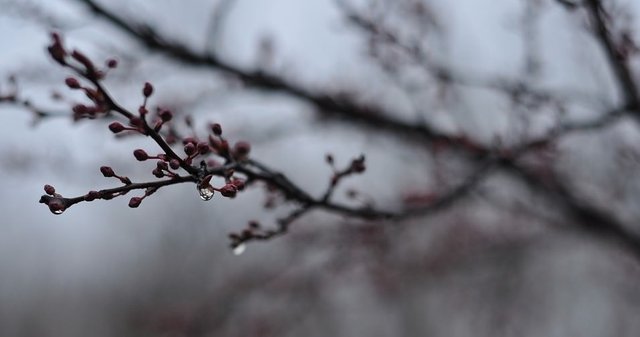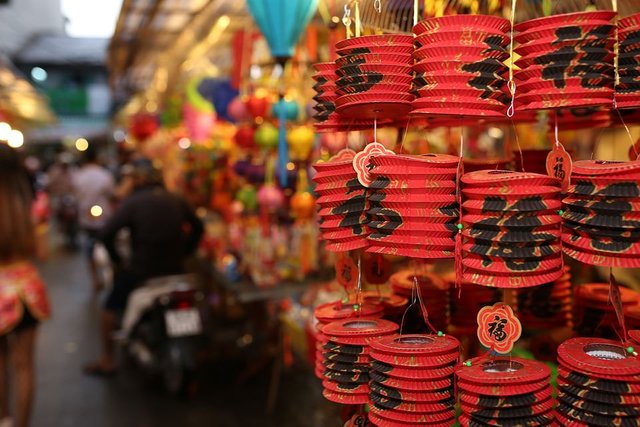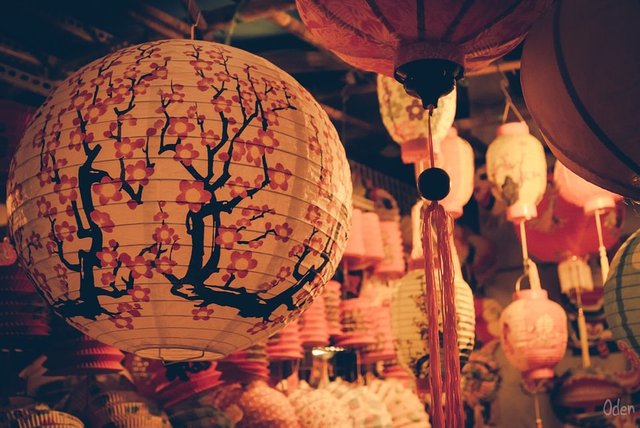Chinese Culture: Calendar(2) 中華講堂:農曆(2)
Solar Term 節氣
One of the prominent feature of Chinese Calendar is the integration of Solar Term 節氣, which signifies the changes of natural phenomena or occurrences, which act as a reminder to fellow Chinese people to prepare for the upcoming activities.節氣乃中國農曆的一大特色,其主要功能為輔助古時候百姓的農事。一年之中分作廿四節氣,依次為:冬至、小寒、大寒、立春、雨水、驚蟄、春分、清明、穀雨、立夏、小滿、芒種、夏至、小暑、大暑、立秋、處暑、白露、秋分、寒露、霜降、立冬、小雪、大雪。
當中,部分節氣至今依舊受到重視,如立春、清明、冬至等日子,許多人仍舊會不同的形式慶祝一番,同時祈求風調雨順,萬事順利,合家安康。
There is 24 in total, and some of them is very important, such as Chun Fen (Spring Equinox 春分) signifies the Spring is in full bloom, chasing away the last coldness from Winter. It used to remind the Chinese people to began their agriculture cultivation activities.

Image Credit: xiaozhubin
立春表示著春天真正的降臨,是草木的萌芽期。在這個時候農民們會開始處理各自的田地以備播種。清明正是春天還未結束,夏天剛剛要開始的時候:萬物都已經準備好在接下來的日子奮發茁壯。於是人民紛紛在這個時候祭祖、先人以祈求保佑。現金則演變成通過共聚一堂,前往掃墓以緬懷先人。
Cold Food (Han Shi 寒食) and Ching Ming (Qing Míng (清明) is the day the Chinese pay respect to ancient noblemen and their ancestor, pray for blessing so that good weather is available all year long. Wei Ya (Last Thanksgiving 尾牙) and Dong Zhi (Winter Solstice 冬至) is the day we Chinese people thanks their partners, friends and family members for the year long support. Even in today, Dong Zhi is often considered as one of the most important festival to many.

Image Credit: Printeboek
收割後冬天降至,任命的活動量慢慢降低,準備好物資熬過嚴冬。而冬至則是整個冬天最陰寒的一天:白天最短,夜晚最長。此時,大夥兒就會聚在,通過團聚吃湯圓的方式來一起互相勉勵、回顧一整年下來日子的起伏好壞,並展望下一個春天。
Festivals 節慶
Other than those prominent Solar Term days, the Chinese people also celebrates some other festivals. Every year just before the new year begins, family member will reunite on the eve 除夕夜 and have a great feast. Then come Chinese New Year 農曆新年 where the ancient Chinese would celebrates for 15 days, the first full moon of the year.
Image Credit: ptksgc
中華文化傳延至今,仍有許多傳統節日依舊獲得現代人的愛戴。雖然慶祝形式與古人相差甚遠,卻無礙人民通過節日表達各自對未來的展望,對親人朋友的感謝,對自己的期許。
渡過寒冷的冬天後,我們也迎來了新的一年。在臘月的最後一天,也就是除夕夜,我們不管身在何方,都會放下手頭上的事情,回到家人身邊一起團圓過年。除夕夜的團圓飯,年初一的爆竹是許許多多外地遊子日盼夜盼的日子,為的就是回家看看父母兄弟,相互祝福。
Dragon Boat Festival 端午節 is the the fifth day of the fifth moon, where the Chinese mourns the tragic death of Qu Yuan, a noblemen that committed suicide on the guilt he blamed on himself after his King failed to accept his advice.
Ghost Festivals 中元節 falls on the mid seventh month of the Chinese calendar. The Chinese people will then mourn and pray to their ancestors, spirits and ghost on this day. Modern Ghost Festivals is heavily influenced by Buddhism and Taoism.
Mid Autumn Festivals 中秋節 is celebrated on the 15th day of the eighth moon, or around late September to early October of the Gregorian calendar, as a harvest festivals. Chinese people gathered with friends and family, thanks them for their support by having a feast together.

Image Credit: nguyentuanhung
端午節、寒食節、清明節、中元節等日子則是體現中華文化之中的『忠』、『孝』精神的日子。於端午節和寒食節中紀念的屈原、介之推都是無雙國士,其大無畏精神值得我們學習。而清明節則是掃墓的日子,通過打掃先人墓地,祭拜並緬懷先人,是古人留下最好的身教。
中元節和中秋節本位慶祝豐收演變至今,其原本意義雖蕩然無存,其中的中心思想卻依舊不變:人生在世,諸事無常,得學會感恩感激所得,同時照顧身邊的其他人。中元節演變至今成了著名的鬼節,為地獄大門大開之時,為祭祀亡靈的節日。而中秋節則成了另一個團聚的日子,在涼爽的深秋共聚一堂,無論是燒烤還是賞月,都是美事一樁。
Conclusion 結語
Chinese civilisation is a marvel itself, being such dynamic and vibrant for over four thousand of years. This few words are far insufficient to describe in detail of what she had taught us. I’m so proud to be a Chinese.傳延四千年的中華文化,博大而精深、大工而不巧,非三言兩語間而能所說清楚。能成為一華人,幸甚!
@originalworks